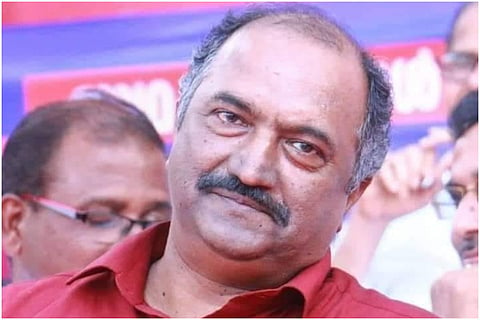

Kerala government saved its face when the Union government permitted it to borrow Rs 5,000 crore on an ad hoc basis on Saturday but for the state there seems to be no wishing away from the looming financial crisis. Recent reports had suggested that the fiscal crisis is so grave that even salaries of state government officials may have to be deferred, but the state Finance Minister K N Balagopal had dismissed them as baseless.
The Union government had earlier set the maximum borrowing limit for the state at Rs 32,425 crore for the current financial year. The Union government, however, for the first time refused to sanction the request by several states, including Kerala.
Kerala, as per the indicative calendar of market borrowings published by the Reserve Bank of India (RBI) on April 5, is entitled to market borrowings in the first quarter of 2022-23 to the tune of Rs 1,000 crore in April, a total of Rs 5,000 crore in May and Rs 3,000 crore in June.
The delay in processing the request for borrowing was due to the stance of the Union government that the borrowings by public-sector undertakings are to be incorporated under the sanctioned limit of the state. This is in tune with the Comptroller and Auditor General of India (CAG's) adverse remarks on the off-budget borrowings through the Kerala Infrastructure Investment Fund Board (KIIFB). The CAG in November 2021, had criticised the off-budget borrowings made through KIFFB and asked the state government to include them in its annual budget statement.
The rationale is that though these off-budget borrowings are outside the legislative control, they are financed through enterprises that are government-owned or under its control, the repayment and servicing of debt would be from the budget.
However, the crisis in the state is mostly attributed to the poor fiscal management over the years. In 2016 June, Thomas Isaac, who was the Finance Minister then, had tabled a white paper on the state's finances on the floor of the Assembly. The white paper warned that Kerala was heading towards a financial crisis. It criticised the Congress-led Oommen Chandy government, which lost power in the 2016 May elections, for the dire financial situation.
The expenditure of the state, at the end of the last fiscal (March this year) stood at Rs 156,980 crore. The borrowings by the state till the end of the fiscal was Rs 42,785 crore while the revenue receipt was Rs 116,546 crore. "Of this the spending on salaries alone was Rs 45,585 crores. The current situation is dire. The huge spending on non-plan expenditure and the fiscal extravaganza will be in addition to this," says BA Prakash.
A major part of the state expenditure is taken up by salaries and pensions. The expenditure on aided educational institutions is also a huge burden.
D Narayana, former director of Gulati Institute of Finance and Taxation said that he had warned the government, while accepting the recommendations of the 11th Pay Commission that it will lead to a crisis. “At that time (in the beginning of 2021) the first wave of Covid-19 was over. But Thomas Isaac, who was the FM, was optimistic and said the government will implement the recommendations and the economy will revive. After KN Balagopal became the FM after the second Pinarayi Vijayan government assumed power, I had requested him to hold back from implementing the recommendations in the changed scenario as the impact of the second wave of Covid-19 will be worse than that of the first wave,” he said.
According to Narayana, in the post-Covid phase, so far, the state did not feel much impact on the economy since it had two things in its favour - the revenue deficit grant and GST compensation. “But this year the revenue deficit grant is much lesser than what it was for the last fiscal. There is roughly a reduction of Rs 1,000 crore.The situation will become grimmer in the months to come because the GST compensation will be stopped from next month onwards. At the same time, the GST collection has also not shown a desirable increase. Also, we don’t have industrial growth and agriculture has not shown an increase in the last several years. Because of these factors a high Gross Domestic Product (GDP) and Gross State Domestic Product (GSDP) growth can’t be expected. Unless the government rationalises its expenses, the situation will continue. Even if you borrow a major chunk it will go as salaries and pension and interest payments,” says Narayana.
Economists are of the view that the state finances continue to face the same issues Thomas Isaac had highlighted in the 2016 whitepaper and unless prudent fiscal management is practised there wouldn’t be any change in situation.
“Talking politics won’t make it work. Fiscal extravaganza should be reduced and we should go for a strict fiscal management,” B Alwin Prakash, economist and Chairman of the fifth state Finance Commission, told TNM.